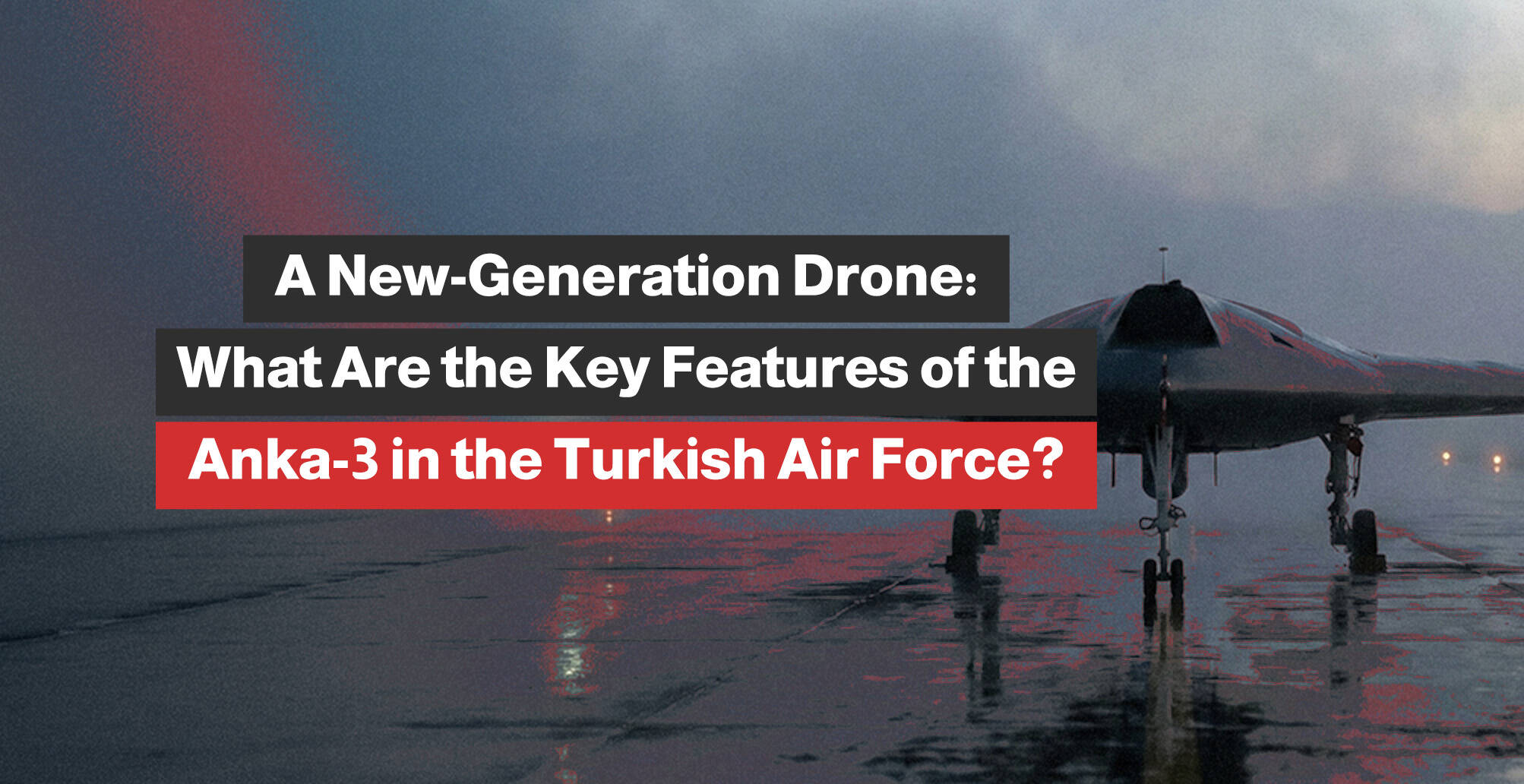Behind the Lines: Russia's Military Ties to the Houthis

The British newspaper confirmed that the Houthis are being recruited to fight in Ukraine.
Although the presence of Yemenis fighting alongside Russian forces in their war against Ukraine is not a new revelation, recent reports exposing the Houthis' involvement in recruitment and sending their fighters to the frontlines have raised pressing questions about the nature of the relationship between the Yemeni militia and Russia.
For over a year, the United States has accused Russia of seeking to provide arms to the Houthis, who have targeted Israeli vessels and those en route to “Israel,” in support of Gaza, which has been under Israeli assault since October 2023.
As part of a coalition named "Guardians of Prosperity," established in January 2024, the United States, alongside Britain and more than 20 allied nations, has launched hundreds of airstrikes against the Houthis to halt their attacks on Israeli-affiliated ships and vessels bound for Israeli ports in the Red Sea during the ongoing Israeli war on Gaza.
Russia’s Houthi Recruitment
In a detailed report published on November 25, the Financial Times revealed information about Russia’s recruitment of hundreds of Yemenis to fight in Ukraine, luring them with promises of high-paying jobs and even Russian citizenship.
According to the newspaper, the recruitment operations are led by a prominent Houthi political figure, using a company linked to the Houthis that deceived recruits with job offers in Russia.
Upon arrival, however, it became clear that they had been forcibly enlisted into the Russian military and sent to the front lines in Ukraine.
The Financial Times reviewed some of the recruitment contracts, finding that they were connected to a company founded by Houthi politician Abdulwali Abdo Hassan al-Jabri.
Registered in Salalah, Oman, the company is listed as a tourism and medical supply retailer.
Al-Jabri, a member of the Yemeni parliament and a brigadier general in the Houthi-aligned army, was among 174 Houthi leaders sentenced to death in absentia by a military court representing Yemen’s internationally recognized government.
On November 27, investigative researcher Lou Osborne from the Swiss Organization Impact stated that the contracts between Houthi mercenaries and the Russian army pass through the company of Houthi politician al-Jabri, who is “involved in the arms trade between Russia and the Houthis”
According to Osborne, some fighters are recruited in Jordan’s capital, Amman, while working in restaurants, with little to no actual military experience.
According to information from the British newspaper, recruitment operations began in July 2024.
While some of the fighters were experienced in combat, the majority had not received any formal training.
The report claims that many were deceived into traveling to Russia, where they unknowingly signed recruitment contracts they were unable to read.
The newspaper reported that it spoke to several Yemenis from a group of 200 individuals, who confirmed they were promised a $10,000 bonus and a monthly salary of $2,000 when they were asked to travel to Ukraine, along with the prospect of Russian citizenship in the end.

Mutual Interests
Regarding the relationship between the Houthis and Russia, Mohammed al-Bukhaiti, a member of the Houthi political bureau, told the Russian news site Meduza in early November 2024 that they maintain "constant contact" with Russian leadership "to develop these relations in all areas, including economics, politics and the military."
Turning to the issue of recruitment, the British newspaper highlighted that the case underscores Russia's growing proximity to Iran and its allied armed groups in the Middle East, as well as its desire to escalate the regional conflict by aligning with a faction targeting shipping in the Red Sea.
The report also cited unnamed U.S. diplomats, who claimed that Moscow is providing support to the Houthis, including targeting data for missile launches, and is in talks with them about selling advanced weapons, including anti-ship missiles.
Anna Borshchevskaya, a Russian affairs analyst, commented on November 25 to al-Hurra that the reason mercenaries fight for both Russia and Ukraine is simple: both governments are willing to pay.
“These (Houthi mercenaries) don’t care about any particular cause; they are just looking for money,” Borshchevskaya said.
In October 2024, The Wall Street Journal reported that “Russia provided targeting data for Yemen’s Houthi rebels as they attacked Western ships in the Red Sea with missiles and drones earlier this year.”
The newspaper noted that, with this move, Russia is directly and actively joining the fight alongside the Iran-backed 'resistance' front in the Middle East.
The report noted that the intelligence provided by Russia to the Houthis relies on Russian satellites, aiding missile and drone strikes on vessels in waters near Yemen.
According to the Hebrew website Channel 12, This intelligence was transmitted from Russia to Yemen through individuals from the Iranian Revolutionary Guard who are working on the ground in Yemen as military advisors.
By the end of the same month, attention was drawn to Russian President Vladimir Putin’s strategic interest in escalating tensions in the Middle East.
His goal appears to be to continue diverting U.S. attention and resources away from the war in Ukraine.
In this context, it was emphasized that this is not the first time reports have suggested the potential for expanding military cooperation between Putin and the Houthis.
According to Al-Estiklal, sources have pointed out that "Iran is mediating between Moscow and Sana'a in a possible deal to transfer advanced anti-ship missiles of the Yakhont type."
Additionally, it was reported that Russian arms dealer Viktor Bout—nicknamed the "Merchant of Death" and released from U.S. prisons in 2024—is reportedly acting as an intermediary in potential arms deals between Russia and the Houthis.

U.S.-Saudi Diplomatic Efforts
On 3 August 2024, CNN reported that “Russia was preparing to deliver missiles and other military equipment to the Houthi rebels in Yemen late last month but pulled back at the last minute amid a flurry of behind-the-scenes efforts by the United States and Saudi Arabia to stop it.”
“The Saudis, who were locked in a brutal war with the Houthis for years before the U.S. helped to negotiate a fragile truce in 2022, warned Russia against arming one of their biggest adversaries upon learning of the plans,” citing anonymous sources.
Two sources told CNN that “The U.S., which has been involved in several diplomatic efforts to stop the Russians from arming the Iran-backed rebels, separately asked the Saudis to help convince Moscow not to pursue the effort.”
A senior U.S. official, who declined to be named, refused to discuss the details of Russia’s plans to arm the Houthis.
However, the official emphasized that any attempt by a third party to bolster the Houthis’ weapons supplies would be contrary to the goals we are working to achieve in terms of securing a lasting peace settlement between the militia and Saudi Arabia in Yemen.
According to Western sources, it remains unclear to the U.S. intelligence community whether the Saudi reaction was the driving force behind Russia’s decision to abandon its plan to arm the Houthis, or if it was simply one of many factors that led Vladimir Putin to reconsider.
The network noted that the Russians viewed arming and advising the Houthis as a means of retaliating against the Biden administration for its decision to allow Ukraine to strike deep within Russian territory using U.S.-provided weapons.
While the arms transfer was reversed, Russia nonetheless deployed military personnel to Yemen, providing advisory support to the Houthis for three days in late July 2024, according to the U.S. network.
Citing two sources, the report stated that “U.S. officials watched as large Russian ships made an unusual stop in the southern Red Sea, where the Russian personnel disembarked, were picked up by the Houthis in a boat, and ferried to Yemen”
“The Russians carried bags with them, but nothing that appeared large enough to carry weapons or weapons components,” the sources said.
A U.S. official noted that “intelligence indicated that the Houthis had intended to conduct live fire exercises while hosting the Russians, but those plans appear to have been scrapped, too.”

On 20 July, The Wall Street Journal reported that “U.S. intelligence agencies are warning that Russia might arm Houthi militants in Yemen with advanced anti-ship missiles in retaliation for the Biden administration’s support for Ukrainian strikes inside Russia with U.S. weapons.”
“The new intelligence comes as the top U.S. Middle East commander recently advised in a classified letter to Defense Secretary Lloyd Austin that military operations in the region are “failing” to deter Houthi attacks on shipping in the Red Sea and that a broader approach is needed, according to U.S. officials.”
“The White House has launched a confidential push to try to stop Moscow from delivering the missiles to the Iranian-backed Houthis, who have been attacking shipping in the Red Sea,” as reported by WSJ.
This came in the wake of heightened concerns about the group's growing threat, particularly after a drone strike launched from Yemen targeted “Tel Aviv” on 19 July.
Sources
- A Swiss organization: Houthis are fighting alongside Russia in Ukraine. [Arabic]
- Russia recruits Yemeni mercenaries to fight in Ukraine.
- After North Koreans [...] How did mercenaries from Yemen reach Russia? [Arabic]
- A Hebrew site claims: This is how Russia helped the Houthis launch attacks in the Red Sea. [Arabic]
- Report: Russia recruits Yemenis to fight in Ukraine through a mysterious company linked to the Houthis. [Arabic]
- Western temptation [...] Why did Moscow backtrack on supplying weapons to the Houthis? [Arabic]











